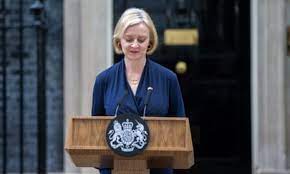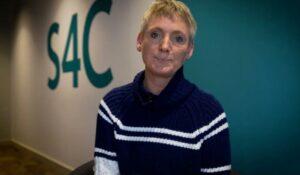- ‘Lies, damned lies etc…’ - 13th February 2026
- Missing in action - 12th February 2026
- Travel news again - 11th February 2026

During 23 years with the BBC, and 41 years in journalism (when he was trained to use simple language, avoiding jargon), our Editor, Welshman Phil Parry has always been aware of the key rule that a proper apology for a mistake is almost never made, and today MORE evidence has emerged which underlines this salient fact.
I despair.
Why don’t people say: “I’m sorry I made a mistake”?

They never do though. It’s always: “I’m sorry for ANY OFFENCE CAUSED”, “I’m sorry if THIS HAS CAUSED DISTRESS” or: “I’m sorry for ANY INCONVENIENCE”, but these so-called expressions of regret are ENTIRELY different, and effectively exonerate the individual who messed up, while justifying reasons for the preposterous action in the first place!
We saw it in spades from Liz Truss (remember her?) who blew up the economy, then released her book saying she was right all along.

In a devastating review of it, The Guardian proclaimed: “Truss can’t say sorry…”.
The most recent example of this ridiculous behaviour, came after the controversial South Korean President Yoon Suk Yeol declared martial law for political reasons, then backtracked within hours because there were huge protests and he realised he’d gone too far.
After disappearing from public view for several days, Mr Yoon re-emerged in the morning of December 7 to deliver a brief, unrepentant address to the nation.


Perhaps predictably, he apologised for the “anxiety and inconvenience” his action had caused, explaining that it was just an act of “desperation”.
Mr Yoon said he was ready to take “legal and political responsibility”, but he stopped short of resigning (or properly saying sorry), and instead stated that he would hand over the rest of his term, as well as the fate of his presidency, to his party.

We have seen this phenomenon closer to home too, with the extraordinary controversy which has engulfed the Welsh language channel S4C.
During it another tactic was used – saying a sacking was unconstitutional/illegal, and that others were to blame, which we have seen many times.
Siân Doyle was Chief Executive Officer (CEO) of the channel, but when she was off on ‘sick leave’ she was sacked and she has stated that she had been “dismissed by the Chairman of S4C, Rhodri Williams, in what I believe is an unprecedented lack of governance for a public body”.

She added: “I was dismissed by letter, without notice, without a meeting, without seeing a copy of the Capital Law report (on bullying in her former organisation) or any evidence, without a right of appeal, and without proper grounds”.
Ms Doyle has announced that details of her predicament were leaked to the media beforehand, saying: “When my letter arrived to dismiss me on a Friday afternoon, I didn’t know that it was coming but the BBC knew and were planning the story before the email landed. If I had been driving I could have heard about my dismissal on the radio.

“The contents of my sick note from my doctor was only known by three people. But it was quoted directly by Martin Shipton in Nation Cymru (a nationalist website which is supported by the taxpayer unlike The Eye).”
Then there is the unbelievable case of her appointee, Llinos Griffin-Williams.

She was also dismissed from S4C (as ‘Chief Content Officer’), after just over a year and a half in the job following allegations of ‘gross misconduct’, but in a letter sent by her lawyers she said that she was left “utterly devastated” by her “unfair dismissal”.
In her dismissal, Ms Griffin-Williams claimed that Mr Williams had “acted unilaterally without the knowledge of the senior management team…and the S4C board”.

She has bleated that she was “denied an opportunity to present evidence from the witnesses who were present (during the incident at the centre of it all) who refute the allegations made against me”, and a statement she issued ended with the headline-grabbing claim that “two women in senior management roles at S4C” have made grievance complaints against Mr Williams.
Yet this step, like the one where they got rid of Ms Doyle, was only taken after a thorough inquiry into the facts of what happened.

So there are, actually, lots of ways of apologising, but not really doing so and admitting you made a mistake – as Mr Yoon has done…
Details of Phil’s astonishing decades-long journalistic career (including his years in broadcasting, although NOT in S4C), as he was gripped by the rare and incurable neurological condition Hereditary Spastic Paraplegia (HSP), have been released in an important book ‘A GOOD STORY’. Order it now.









